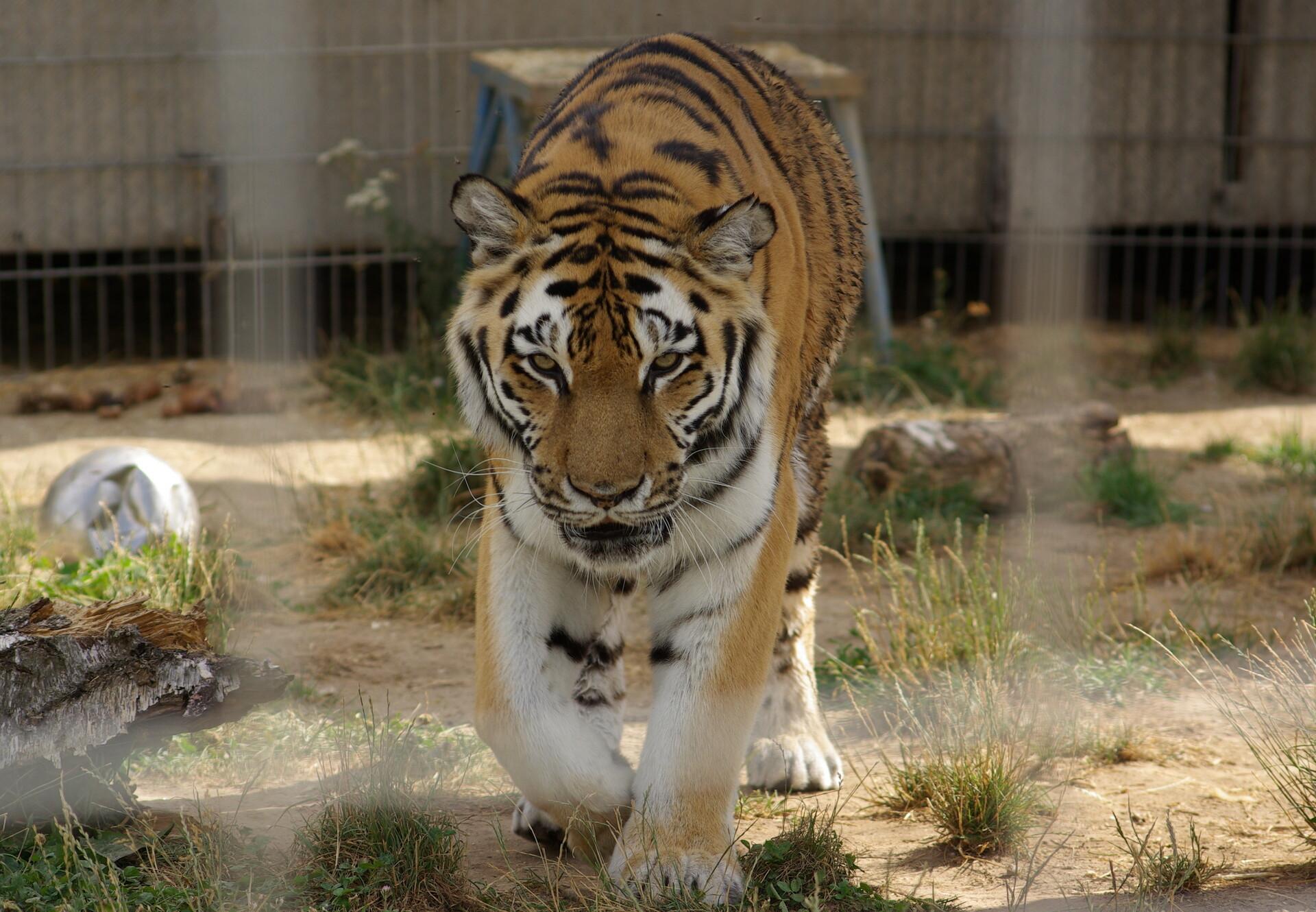
Two Former Circus Tigers Retire to Species-Appropriate Home in Germany
FOUR PAWS transfers Jill and Sahib to Animal and Species Protection Centre TIERART
28 July 2020 – After having spent most of their lives performing in the German Manuel Weisheit circus, global animal welfare organisation FOUR PAWS has now brought two tigers to a species-appropriate home. On 25 July, the FOUR PAWS-owned Animal and Species Protection Centre TIERART in Southwest Germany welcomed tiger Sahib and tigress Jill to their new home. After their previous owner stopped working for circuses, he asked FOUR PAWS for help with rehoming the Siberian tigers. The experienced team at TIERART will now provide Sahib and Jill with the care they need to live a happy and healthy retirement from circus life. Whilst the tigers can now look ahead to a life away from the circus, for many animals this is not the case. FOUR PAWS continues to urge for an Europe-wide ban on the commercial tiger trade, which further enables the abuse of big cats for entertainment purposes like circus shows.
14-year-old Sahib and 13-year-old Jill were temporarily kept at a horse ranch near Mannheim since early 2020, after the travelling circus was rendered immobile due to COVID-19 restrictions, but now a FOUR PAWS team has brought them to TIERART with the help of their former owner. He acquired the tigers in 2007 from German Tierpark Nadermann, where they were bred, and began circus training them at just one year old. Instead of selling the tigers after he stopped his circus work, the owner handed them into the care of FOUR PAWS. Due to the proximity between the horse ranch and TIERART, the tigers arrived at their new home after a short journey of one and a half hours.
Out of control tiger trade in Europe
Throughout Europe, it is legal to breed and commercially trade captive tigers both within Europe and for export around the world. Even keeping wild animals in circuses or as pets is still allowed in many countries, including Germany. The animals are often kept in poor conditions and made to endure cruel treatment. A recent FOUR PAWS report on tiger trade highlights that European authorities are unaware of the number of tigers kept in their own countries. For example, 78 authorities contacted in Germany via Freedom of Information requests were unable to provide the number of tigers kept in zoos, sanctuaries or private homes. “While we commend the previous owner of Sahib and Jill for wanting them to have a species-appropriate retirement after many years in the circus, most captive tigers share a different fate. Without effective record-keeping of captive tiger numbers in EU Member States and control on the trade within the EU, cases of illegal trade and subsequent cruelty will continue to flourish. By introducing a comprehensive Europe-wide commercial ban for captive tigers, traders can no longer exploit big cats for profit,” says Kieran Harkin, responsible for Wild Animals in Trade at FOUR PAWS.
Wild animals do not belong in the circus
Circuses constantly move from one location to the next. The cages have to be transported and therefore need to take up as little space as possible and be assembled and disassembled quickly. Most circus animals spend the majority of time in transport wagons and small temporary enclosures that restrict natural behaviours and often leave no room for climbing, running, or bathing – activities that are vital for the well-being of any animal, especially tigers. Moreover, human handling and forced performances of unnatural behaviours are daily routines in the circus environment and these stressors are detrimental for wild animal welfare. The use of wild animals like big cats in circuses also presents a potential danger to public safety and security. 23 out of 27 EU Member States (research conducted before Brexit) adopted restrictions on the use of either all, or exclusively wild animals in circuses. However, Germany, France, Italy and Lithuania do not have any restrictions on the use of wild animals in circuses. FOUR PAWS estimates there are still about thirty tigers kept in travelling circuses in Germany and continues its years-long campaign, urging the government to finally introduce a ban on all wild animals in circuses in the country.
